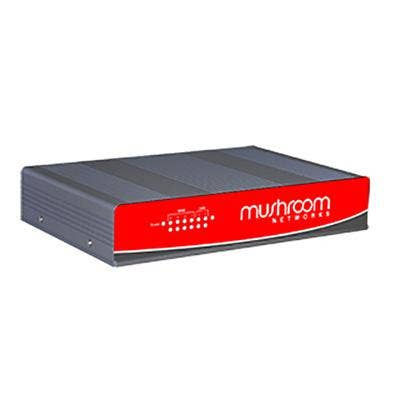Mushroom Networks' CEO: Why VoIP Is 'Ready For Mass Adoption' And How Partners Can Cash In

VoIP Ready For Primetime
Voice over IP (VoIP) is evolving from simply being viewed as a money-saving phone service for businesses and consumers. This modern voice technology is starting to play an essential role for business customers, and solution providers are well-positioned to encourage adoption.
Mushroom Networks is a San Diego-based network performance vendor that offers bandwidth management and network load balancing products to business customers, as well as to its robust group of channel partners. The provider recently entered into the VoIP arena and is working hard to enable its partners in the voice performance space, too.
Cahit Akin, CEO of Mushroom Networks sat down with CRN to discuss market trends driving VoIP, how partners can help assure businesses that VoIP is reliable, and how the channel can benefit from VoIP adoption in the enterprise.

Talk about the latest focus Mushroom Networks has on VoIP performance
Mushroom Networks has been supplying what we call "broadband network appliances." These are installed either at the enterprise branch offices or it can be used by SMBs as well. These devices are capable of managing two or more internet lines for best reliability and performance for end users. Say, for example, you have the device in your office and you plug in your lines -- you might have MPLS, DSL, or cable – and you can get the benefit of the aggregate speeds and bandwidth, as well as the intelligent, reliable network because applications are avoiding the problem [areas]. More specifically, we customize products for specific apps and we modularize them so they are available as a standalone appliance for a specific application -- like for VoIP Armor -- which is a new product, or the same VoIP Armor functionally, for example, can be integrated into our broadband bonding network appliances as well so it can be part of a portfolio of options.

Describe Mushroom Networks' VoIP Armor product
Our VoIP Armor was designed to address pain points around VoIP. It was announced last summer and began shipping about four months ago.
VoIP is really reliant on certain aspects of the network, and if the [network] conditions aren't great, it could result in things like packet loss, latency and jitter. If you are suffering on any of those, you will either drop calls or suffer from lower voice and call quality. Those negative impacts can be removed if VoIP Armor is in your system. [The product] can manage traffic and route VoIP traffic around network problems. The VoIP Armor system is keeping track of all the lines, like MPLS or cable, so immediately it can start having packets flow over [the] second best line, which now became the best line at that moment so phone conversations can be kept alive.
[VoIP Armor] was recently added to our reseller partner program, so now our resellers can resell this equipment as well. It's compatible with any PBX and SIP trunk because it works as an overlay.

Can you tell us about the Mushroom Networks' partner program, and how the channel can sell VoIP Armor?
We have more than 500 resellers worldwide, and we have resellers in about 40 countries.
First, we began selling VoIP Armor directly and then rolled it out to the channel. We have a couple of different models in which partners can sell [VoIP Armor]. We have the virtualized version of the server component, so we can host it for the partner and they can just resell that service. We also give the partner the opportunity to physically install it themselves on their own server. We have a suggested pricing model, but the partner can even model the selling according to their liking – either as a recurring model, or a one-time upfront fee.

What has been the reaction from the channel to VoIP Armor so far?
So far, [partners] are really excited about it and we have been socializing the concept with them and got their input on the product as well. This product didn’t come out of nowhere -- we certainly kept them in the loop. Some of our partners have a network focus, but some of them primarily look at VoIP applications. For those partners especially, it has been great news. In a way, we have been addressing the general reliability and performance of applications for years with our primary product line. However, this very custom and specialized appliance for VoIP is really needed in the market.

Talk about the market need for a product tailored to VoIP performance
One of the triggers is we had seen anecdotally with clients and even some studies out there are showing that many IT managers still include legacy transports in their VoIP rollouts - even in some cases T1 and analog lines, believe it or not, and this was kind of shocking to us. Why not move to all IP for VoIP? The primary reason was reliability expectations around VoIP. [Some business customers] are still budgeting for fallback scenarios and I think there is no reason in this day and age to not be fully on IP. Of course, the reliability issues need to be 100 percent addressed. As an industry, coming up with solutions like VoIP Armor will help companies like us and partners be able to give business customers a nudge to move to 100 percent to VoIP.

Specifically, how can VoIP performance products help partners encourage VoIP adoption among their customers?
If you look at hosted PBX and the cloud, having an analog option disappears and you have to have everything IP because you are accessing the PBX over the internet. In these cases, internet connectivity to PBXs becomes very valuable. I think that transition to the cloud will help VoIP adoption rates as well.
If you are looking at things you don’t control, like cross traffic in the network from an employee watching YouTube, those factors get in the way no matter how great the VoIP system is. There are still "risk" factors and that’s the reason why we are seeing these objections to fully going to VoIP. But if you create a system where you can work around those problems instantly, instead of putting all your eggs in one basket, the chances of having an issue with all of these baskets, all at the same time, is practically zero. And cost-wise, you can use very cost-effective links so you don’t have to spend thousands on all MPLS lines. The challenge for us and for partners is educating the market.

How can solution providers cash in on VoIP trends?
There's a move toward VoIP in general thanks to trends like the Internet of Things [IoT]. Now, devices are becoming intelligent and [are able to] sense things. The phone call doesn’t necessarily mean it's between two humans anymore. Calls are happening between things and humans, and there's more communicating [happening] in general. This is becoming a driver for VoIP applications, because legacy systems can't support these [advancements].
Additionally, some businesses don’t want to worry about maintaining an on-premise phone system but just want it to work, and will pay the service fee month to month by off-loading this maintenance to a solution provider. These trends are gaining strength, and I think VoIP is ready for mass adoption.